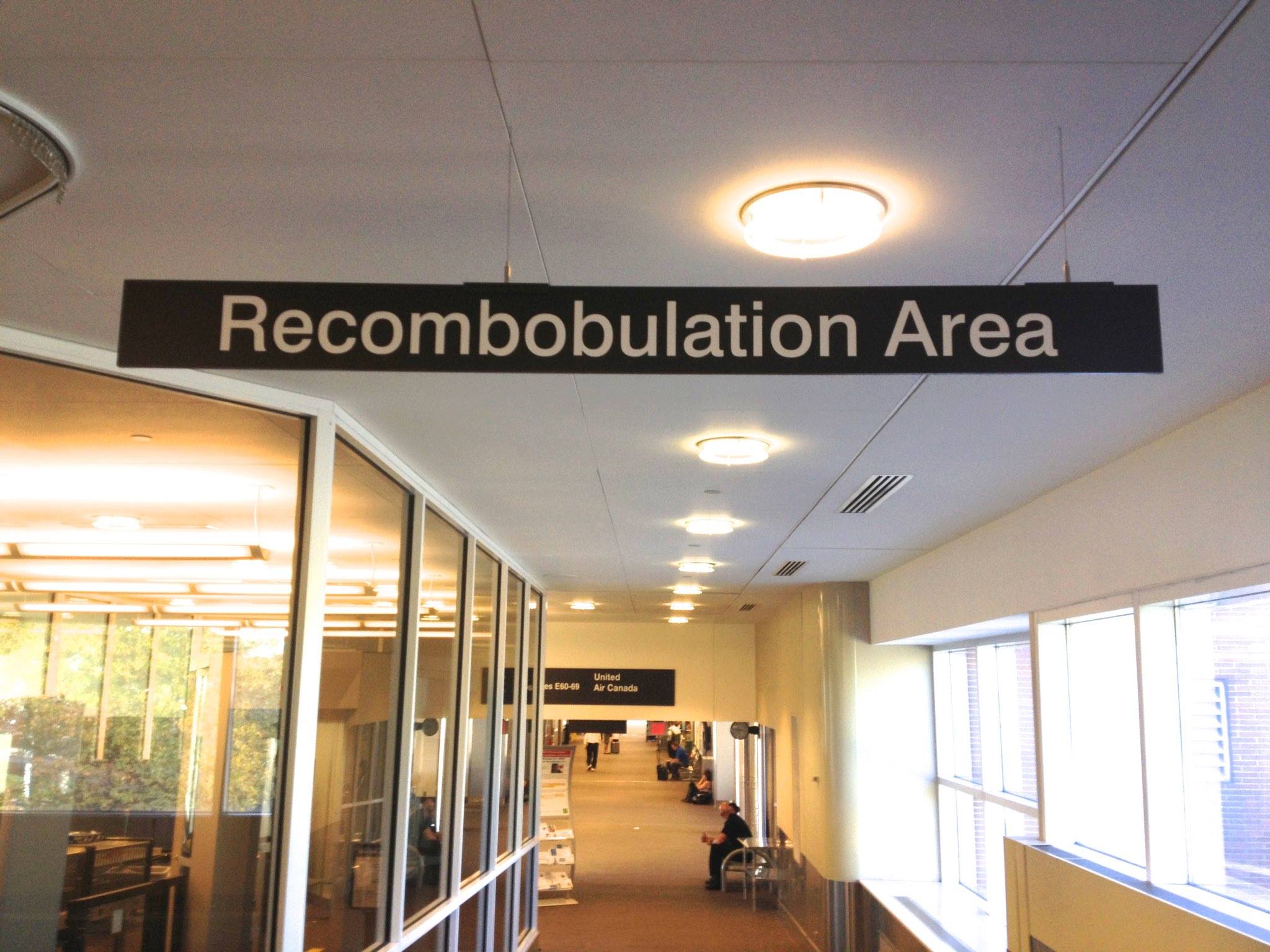Sign up for The Media Today, CJR’s daily newsletter.
You’ve gone through TSA screening at the airport. Your laptop, shoes, jacket, cellphone, and bag of liquids are splayed in a couple of plastic bins, which roll out of the X-ray machine and bang into your suitcase. Lots of other suitcases and bins are piling up behind yours, so you hurriedly grab your stuff and try to find a place to put yourself back together.
At the airport in Milwaukee, there’s a helpful sign: “Recombobulation Area.”
Who says the government has no sense of humor?
You won’t find “recombobulate” in any curated dictionary, meaning one put together by lexicographers, linguists, or etymologists. But do you really need a definition?
Okay, here’s one from Urban Dictionary: “Something being put back the way it was, or into proper working order.”
“Recombobulation” is a word formed from necessity. When you’ve gone through TSA screening and are dropping all your belongings, you might feel like you’re falling to pieces, or “discombobulated.” You need an antonym, an opposite word.
Enter “recombobulation.”
It’s been around since at least 1970, when the feminist author Carolyn Heilbrun used it in her novel Poetic Justice, one of many she published under the pseudonym Amanda Cross.
“To return,” Reed said, “to the conversation of last night, why has misrule and horseplay brought you to such a state of discombobulation? Or, since it has, may I offer my help in recombobulation?”
The humorist Garrison Keillor seems fond of “recombobulation.” He wrote about it in 2010, referring to that airport sign but in a more political context, and again just before the 2016 election, urging the American electorate, “It’s time for recombobulation, after this long-running smash-hit presidential campaign.”
We wrote about “discombobulation” a few years ago, as part of a column about words with negative prefixes but no correlating positive one. We’ve also written about words with negative suffixes but no correlating positive ones, like “feckless.”
ICYMI: Facebook got rid of bots following news organizations. One outlet saw its followers “decimated.”
But not all words that seem to be formed with negative prefixes or suffixes actually have been. “Discombobulate” is one: English never had a word “combobulate” to which the negative prefix could be applied. Most dictionaries trace “discombobulate” to a variation of “discompose,” “discomfit,” or “discomfort,” all of which were formed by adding negative prefixes to existing words. “Discombobulate” entered English on its own, probably as an American regionalism, The Oxford English Dictionary says. (It still calls “discombobulate” “chiefly U.S.”)
“Recombobulate” is spreading beyond airports and politics. A staff member at an arts association said she enjoyed interacting with convention panelists “while they prepare before or recombobulate after their sessions.” A blogger used it to describe the efforts of getting dressed or undressed for Minnesota winters. A news feature described “a discombobulated oil cap” that “had to be recombobulated to stop it from spewing oil.” The Washington Post used it twice in two months last year, once in an education column and once in a television commentary that seems to use it more to mean “combined” than “put back together.” And so on.
At least one blogger is calling for “recombobulation” to be added to the OED. It is not caught by Microsoft Word’s spelling checker. The language expert Anne Curzan discussed “recombobulate” at a conference of copy editors. So it’s probably just a matter of time before it gets its due. After all, if it’s good enough for the TSA, an entity of the government not known for using jargon or obfuscation, it must be good enough for the rest of us.
ICYMI: A Meryl Streep, Tom Hanks movie has former New York Times journalists pretty ticked off
Has America ever needed a media defender more than now? Help us by joining CJR today.



